Saw Palmetto For Hair Loss: Side Effects And Precautions
Learn the truth before jumping on this natural remedy to boost hair growth.
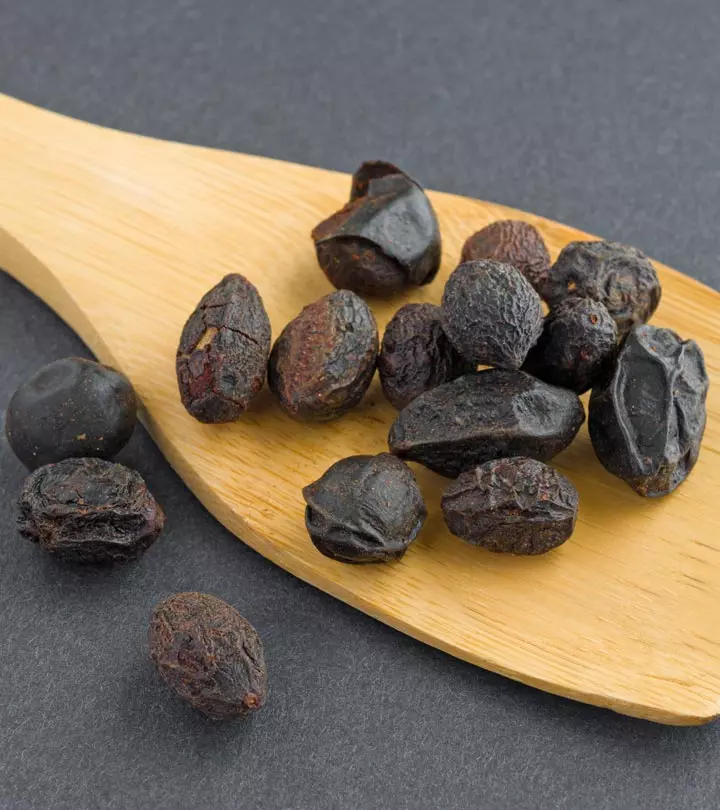
Image: shutter stock
Saw palmetto for hair loss is believed to be an effective solution for your hair-related woes. If you have tried chemically-laden hair loss products and none of them worked, you may try this natural remedy. Saw palmetto (Serenoa repens) is famous for promoting prostate health but it also prevents hair loss and may reverse it. Native Americans used it centuries ago to treat a variety of ailments. Several studies suggest that this plant’s fruits lead to hair growth stimulation in men (1). This article examines what evidence is for the benefits of saw palmetto for hair loss. Additionally, we look at its dosage, ideal use, and potential side effects. Scroll down.

In This Article
What Is Saw Palmetto?

Saw palmetto, also known as Serenoa repens, is a slow-growing palm tree that is indigenous to the southeastern United States. It is a small-sized tree, and its ripe fruit contains bioactive compounds, including fatty acids and phytosterols. Thus, it is often used in various herbal remedies. The plant is also claimed to exhibit anti-inflammatory properties and has recently gained popularity as a health supplement. It is mainly known for promoting prostate health in men and has been praised as a remedy for hair loss and urinary tract issues as well. However, it is important to note that there is limited research to fully support these claims.
Key Takeaways
- Saw palmetto reduces the growth of DHT, a hormone that causes hair fall, and improves hair growth.
- You can consume Saw palmetto as medicines, liquid extract, or raw dried fruit.
- Apply Saw palmetto with olive oil, pumpkin seeds, aloe vera, and jaborandi oil to reduce hair loss.
- Excessive consumption of saw palmetto may cause headaches, nausea, liver damage, and even prostate cancer.
How Does Saw Palmetto Help Curb Hair Loss?

Research on the benefits of saw palmetto for hair loss is limited. In one study, topical products containing saw palmetto extract helped treat male androgenetic alopecia (permanent hair loss on the scalp) (1). Saw palmetto might inhibit the action of 5-alpha reductase, an enzyme that can lead to male pattern baldness by converting testosterone to DHT (dihydrotestosterone) (2), (3). The formation of dihydrotestosterone (DHT) is one major cause of hair loss. DHT attaches itself to the hair follicles and blocks their nourishment. More information on the use of saw palmetto as a drug for reversing hair loss is warranted.
Saw palmetto’s anti-inflammatory properties help fight inflammation and might also help treat hair loss (4). This herb is available in various forms for use.
What Forms Is Saw Palmetto Available In?

Saw palmetto is available as tablets, powdered capsules, and liquid extracts. It is also available as whole dried fruit or fruit preparations (used in making tea or water extracts) and tinctures.
In the following section, we will explore how you can use this herb for promoting hair health.
How To Use Saw Palmetto?
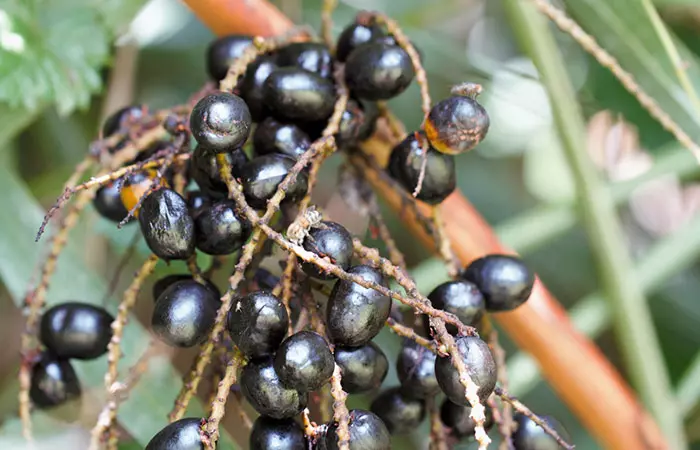
1. Saw Palmetto And Olive Oil
An oil massage improves blood circulation and nourishes your hair follicles. Olive oil has excellent nutritional and conditioning properties that can improve hair and follicular health (5). You can use this remedy thrice a week.
You Will Need
- 6-8 drops of saw palmetto oil
- 1 tablespoon of olive oil
Process
- Mix both the oils in a bowl.
- Heat the mixture for a couple of seconds until it is slightly warm.
- Rub the oil mixture into your scalp with your fingertips.
- Massage your scalp for about 15 minutes.
- Leave the mixture on for about another 30 minutes.
- Wash your hair with a mild sulfate-free shampoo.
- Let your hair air dry.
2. Saw Palmetto Extract
This extract may help minimize the production of DHT and reduce hair loss (3).
You Will Need
- 4 drops of saw palmetto extract
- 1 teaspoon of warm water
Process
- Dilute the saw palmetto extract with warm water.
- Massage the solution into your scalp.
- Leave the extract on for an hour
- Wash your hair with a mild sulfate-free shampoo.
- Let your hair air dry.
 Quick Tip
Quick TipYou can also add saw palmetto extract to rice water, cucumber water, or rose water. These alternatives are said to make your hair shiny and curb frizz.
3. Pumpkin Seed Oil And Saw Palmetto
Pumpkin seed oil may also help block DHT production (6).
It also may help stimulate hair regrowth (7).
You Will Need
- 6-8 drops of saw palmetto oil
- 1 tablespoon of pumpkin seed oil
Process
- Mix both the oils in a bowl.
- Heat the oil mixture for a couple of seconds until it is slightly warm.
- Rub the oil into your scalp with your fingertips.
- Massage your scalp for about 15 minutes.
- Leave the oil on for an additional 30 minutes.
- Wash your hair with a mild sulfate-free shampoo.
- Let your hair air dry.
Along with pumpkin seed oil, some other oils that may help reduce hair loss are rosemary oil, lavender oil, and peppermint oil.
4. Jaborandi And Saw Palmetto
Jaborandi is a well-known homeopathic remedy for hair loss. Extracts of jaborandi leaves contain pilocarpine that may help combat hair loss (8). However, more research is warranted in this regard.
You Will Need
- 1 tablespoon of jaborandi oil
- 6-8 drops of saw palmetto oil
Process
- Mix both the oils in a bowl.
- Heat the oil blend for a couple of seconds until it is slightly warm.
- Rub the blend into your scalp with your fingertips.
- Massage your scalp for about 15 minutes.
- Leave the oil on for an additional 30 minutes.
- Wash your hair with a mild sulfate-free shampoo.
- Let your hair air dry.
5. Saw Palmetto And Aloe Vera
Aloe vera
helps maintain the pH balance of your scalp and strengthens your hair follicles promoting scalp health. Its antimicrobial properties and antioxidants may help soothe scalp itching or aggravation (9).
You Will Need
- 2 teaspoons of ground saw palmetto
- 1 tablespoon of pure aloe vera gel (extracted from the leaf or store-bought)
Process
- Mix the aloe vera and this, add 2 teaspoons of ground saw palmetto.
- Apply this mixture to the affected areas on your scalp.
- Leave the mixture on for 15 minutes and rinse with cool water.
- Optionally, you can also rinse your hair with a mild sulfate-free shampoo. Ensure you do not shampoo your hair more than thrice a week.
In addition to topical application, consuming saw palmetto may also help treat hair loss. It is important to take the herb in the right dosage.
Saw Palmetto Dosage For Hair Loss
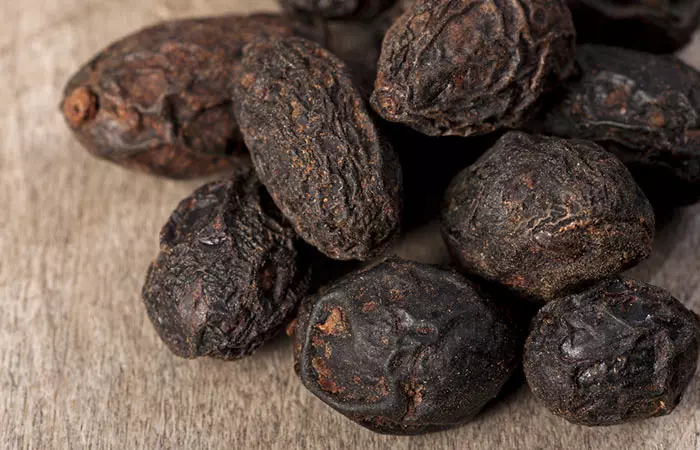
Saw palmetto seems to be more effective when taken as a fruit or supplement. The recommended dosage of a saw palmetto supplement in adults is 160 mg twice a day (3). Consult your doctor before taking any supplements.
In a study conducted on 381 androgenic alopecia patients, it was found that there was a 60% overall improvement in hair quality after taking oral and topical supplements of saw palmetto. It was also noted that supplements helped in 27% improvement in total hair count, 83.3% increased in hair density. So start your saw palmetto hair supplements to reduce hair loss.
 StyleCraze Says StyleCraze SaysBuy hair care products like serums, masks, and conditioners made with saw palmetto. You can also add saw palmetto extract to your shampoo or serum. How Long Does Saw Palmetto Take To Treat Hair Loss?You need to use saw palmetto regularly for 2-3 months to see any significant results. However, in some cases, the results may take up to a year to show. This information is based on anecdotal evidence. |
Saw palmetto may also cause side effects in some cases. You must know them before you start using it.
Side Effects And Precautions

Saw palmetto is generally considered safe. A high intake of saw palmetto for a long time may cause mild headaches, nausea, vomiting, and stomach upset (10), (11). It also may increase the risk of bleeding (12). Avoid intake before surgery. Consult your doctor. The safety of saw palmetto during pregnancy or breastfeeding is yet to be studied. Stay safe and avoid use.
There is some concern that saw palmetto might cause liver damage in certain individuals (13). It also may reduce the levels of prostate-specific antigen in males, making the early detection of prostate cancer difficult (14).
Saw palmetto might also interact with a few medications, including blood thinners like warfarin. Do not take the herb along with blood thinners (15).
Infographic: 4 Easy Saw Palmetto Recipes For Hair Loss
Saw palmetto has been used for ages as a trusted homeopathic remedy for reducing extreme hair loss and managing various other hair concerns. The plant extract can be used in numerous ways to strengthen thin, brittle strands and minimize shedding. To learn more about the simple recipes, check out the infographic below and get on the journey to healthy, voluminous tresses.

Illustration: StyleCraze Design Team
Saw palmetto, one of the current most popular herbs for hair loss, has been used by Native Americans for centuries to treat a wide variety of medical conditions and maintain hormonal imbalances by inhibiting testosterone levels in women (16). Studies suggest that topical application of saw palmetto may inhibit the action of the DHT hormone which is responsible for hair loss. Today, saw palmetto is available as a tablet, powdered capsule, and liquid extract. You can also use saw palmetto in combination with olive oil and aloe vera at home. However, overconsumption of saw palmetto for hair loss can result in nausea, vomiting, and headaches. Consult a doctor before using saw palmetto.
Frequently Asked Questions
Is 900 mg of saw palmetto too much?
While saw palmetto is used in doses of 320-960 mg for up to 3 years, you should consult a doctor to ascertain the correct dosage.
Does saw palmetto make hair thicker?
Animal studies indicate that saw palmetto might help reduce hair loss, thus maintaining your hair volume. However, further human studies and research is required to substantiate the claim.
Can I leave saw palmetto overnight in my hair?
Yes. If you use hair serums or leave-in conditioners containing saw palmetto, it is safe to leave it overnight in your hair.
Did you know that saw palmetto is considered to be a natural remedy for hair loss? Dive into this informative video to learn how it can help restore your hair health and growth.
References
Articles on StyleCraze are backed by verified information from peer-reviewed and academic research papers, reputed organizations, research institutions, and medical associations to ensure accuracy and relevance. Read our editorial policy to learn more.
- Treatment of male androgenetic alopecia with topical products containing Serenoa repens extract
https://pubmed.ncbi.nlm.nih.gov/26010505/ - A randomized, double-blind, placebo-controlled trial to determine the effectiveness of botanically derived inhibitors of 5-alpha-reductase in the treatment of androgenetic alopecia
https://pubmed.ncbi.nlm.nih.gov/12006122/ - Serenoa Repens: Does It have Any Role in the Management of Androgenetic Alopecia?
https://www.ncbi.nlm.nih.gov/pmc/articles/PMC2840915/ - The Use of Serenoa Repens (Saw Palmetto) in Hair Care Products
https://biomedres.us/pdfs/BJSTR.MS.ID.002348.pdf - Ethnopharmacological survey of home remedies used for treatment of hair and scalp and their methods of preparation in the West Bank-Palestine
https://www.ncbi.nlm.nih.gov/pmc/articles/PMC5499037/ - Effect of Pumpkin Seed Oil on Hair Growth in Men with Androgenetic Alopecia: A Randomized, Double-Blind, Placebo-Controlled Trial
https://www.ncbi.nlm.nih.gov/pmc/articles/PMC4017725/ - Beneficial effects of pumpkin seed oil as a topical hair growth promoting agent in a mice model
https://www.ncbi.nlm.nih.gov/pmc/articles/PMC6823528/ - PROSPECT OF HERBS AS HAIR GROWTH POTENTIAL
https://www.researchgate.net/publication/312167161_PROSPECT_OF_HERBS_AS_HAIR_GROWTH_POTENTIAL - ALOE VERA: A SHORT REVIEW
https://www.ncbi.nlm.nih.gov/pmc/articles/PMC2763764/ - Saw Palmetto
https://www.nccih.nih.gov/health/saw-palmetto - LiverTox: Clinical and Research Information on Drug-Induced Liver Injury
https://www.ncbi.nlm.nih.gov/books/NBK548378/ - Coagulopathy induced by saw palmetto: a case report
https://pubmed.ncbi.nlm.nih.gov/20120986/ - Acute liver damage due to Serenoa repens: a case report
https://www.ncbi.nlm.nih.gov/pmc/articles/PMC2856058/ - Serenoa Repens: Does It have Any Role in the Management of Androgenetic Alopecia?
https://www.ncbi.nlm.nih.gov/pmc/articles/PMC2840915/ - Updates on the Clinical Evidenced Herb-Warfarin Interactions
https://www.ncbi.nlm.nih.gov/pmc/articles/PMC3976951/ - Appendix KPrototype Focused Monograph: Review of Antiandrogenic Risks of Saw Palmetto Ingestion by Women1
https://www.ncbi.nlm.nih.gov/books/NBK216069/
Read full bio of Dr. Shruti Chavan
Read full bio of Sindhu Koganti
Read full bio of Ravi Teja Tadimalla
Read full bio of Payal Karnik













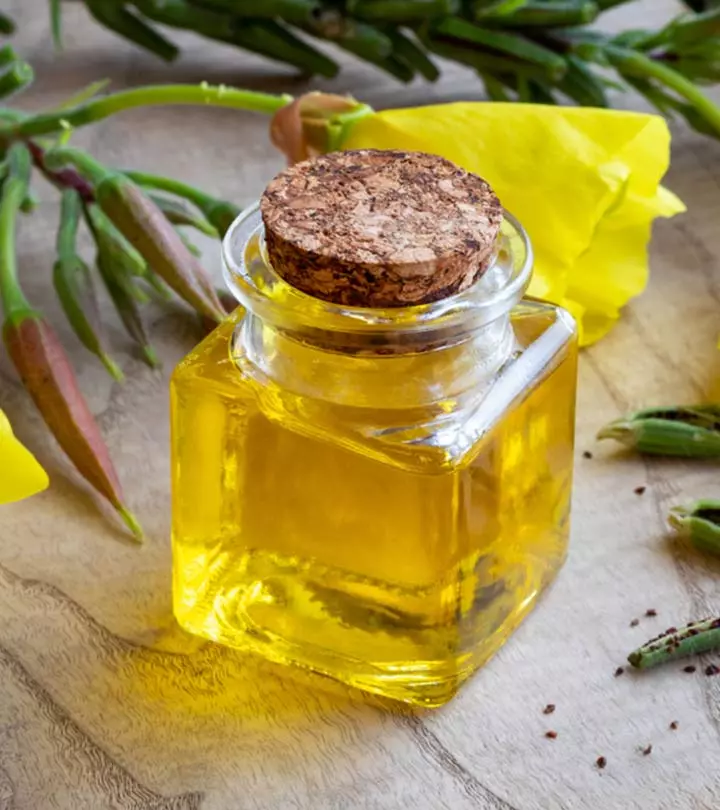
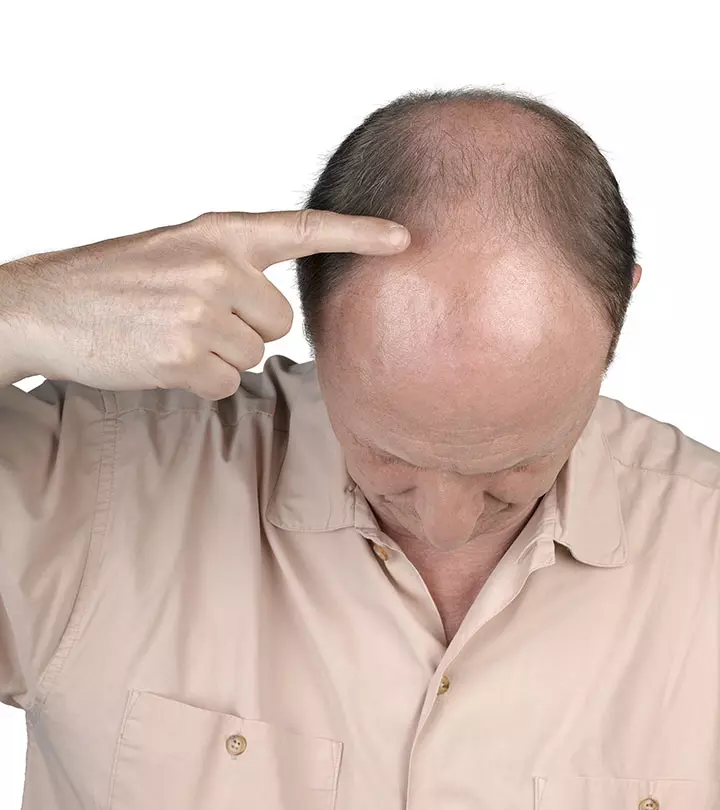








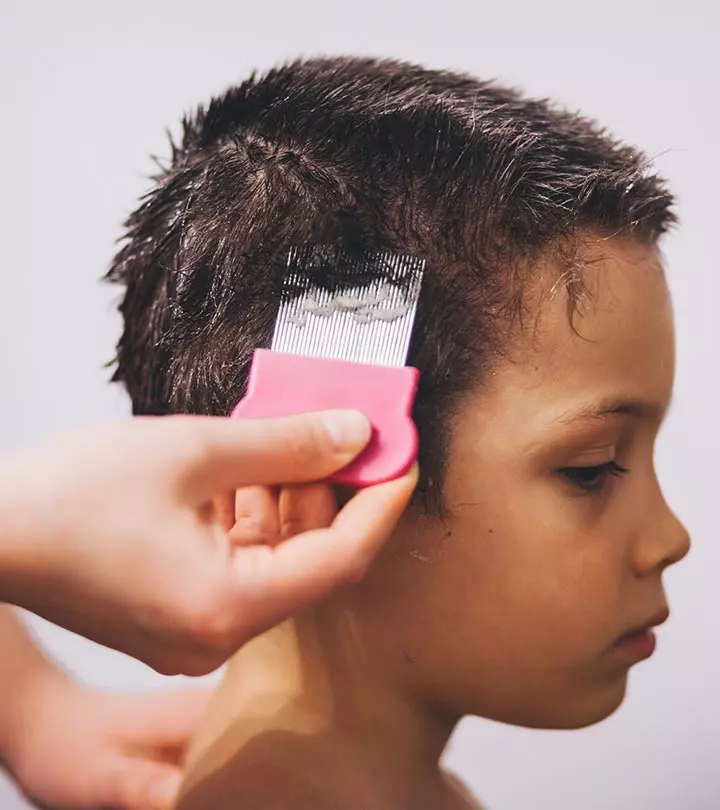


Community Experiences
Join the conversation and become a part of our empowering community! Share your stories, experiences, and insights to connect with other beauty, lifestyle, and health enthusiasts.